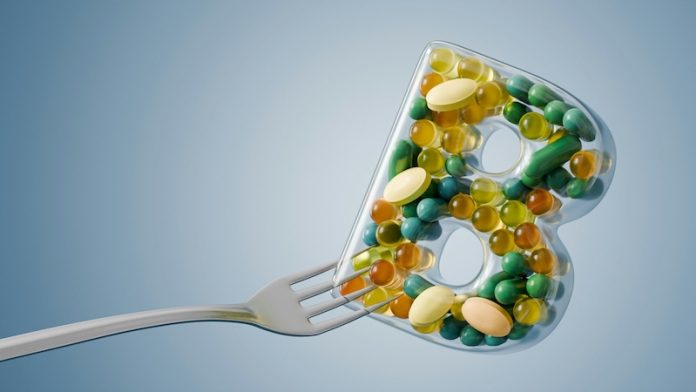
High blood pressure, also known as hypertension, affects millions of people worldwide and is a major cause of heart disease and stroke. For many people, it can be hard to manage, especially when medications don’t work well.
A new study from the University of Maine suggests that certain B vitamins could help reduce high blood pressure, especially for people whose condition doesn’t respond to standard treatments.
About 12.8% of the global population has drug-resistant hypertension. This means their blood pressure stays high even when they take multiple medications.
Doctors usually aim to keep blood pressure below 140/90 mmHg, but newer guidelines suggest an even lower target of 130/80 mmHg. For people with drug-resistant hypertension, reaching these numbers can be very difficult, and their risk for heart attack or stroke is higher.
One reason for this might be a compound in the body called homocysteine. Homocysteine levels can rise if a person doesn’t get enough B vitamins—such as B6, B12, folate, and riboflavin (B2)—or due to certain genes. High homocysteine levels can damage blood vessels, causing them to become tight and raising blood pressure.
Researchers from the University of Maine reviewed older studies and found that taking enough B vitamins can lower homocysteine levels. This drop in homocysteine could reduce blood pressure by 6 to 13 mmHg, which is a big improvement for many people.
These findings show that B vitamins could be a helpful, safe, and affordable way to manage high blood pressure—especially for those who haven’t had success with medications.
However, there’s still debate about what counts as a healthy level of homocysteine. Many labs say anything up to 11.4 μmol/L is normal, but some experts believe that levels should be below 10 μmol/L. This difference shows the need for more agreement on healthy standards.
B vitamins play a key role in managing homocysteine and supporting heart health. Based on this study, Vitamin B could be a good extra option for people with drug-resistant high blood pressure. Still, anyone thinking about using B vitamins to manage their blood pressure should talk to a doctor first to make sure it’s the right choice for them.
This new approach is exciting because it’s natural, low-cost, and could be added to other treatments. As scientists continue to study the link between homocysteine and high blood pressure, B vitamins might become a standard part of care for many people.
In summary, using B vitamins to help control high blood pressure could be a simple and affordable option, especially for those who don’t respond well to medication. More research is needed, but this study offers new hope for better treatment options. Always talk to a healthcare provider before starting any new treatment.
If you care about high blood pressure, please read studies that early time-restricted eating could help improve blood pressure, and natural coconut sugar could help reduce blood pressure and artery stiffness.
For more information about blood pressure, please see recent studies about How to eat your way to healthy blood pressure and results showing that Modified traditional Chinese cuisine can lower blood pressure.
Copyright © 2025 Knowridge Science Report. All rights reserved.



